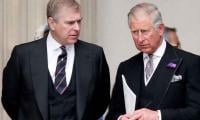Setting ourselves back a century
The UN Global Education Monitoring Report 2016 highlights that Pakistan is alarmingly lagging behind in implementing its primary and secondary education targets.
This is despite the fact that Pakistan has repeatedly voiced its commitment to securing universal education, a key component of the Sustainable Development Goals (SDGs). It is worth noting that a Parliamentary SDGs Task Force was established for expediting implementation of the SDGs, of which quality education is goal number four.
The majority of schools in Pakistan operate within the public sector. In fact, out of approximately 225,711 schools in Pakistan, only 66,089 are private schools. This essentially means that 71 percent of schools are government schools. In other words, the government is miserably failing to improve education standards across the country. Further, the government is clearly misleading the European Union on how much it has done to uphold its side of the bargain under the GSP Plus regime.
As part of the GSP Plus regime, Pakistan must ensure effective implementation of 27 international conventions. Two of the key conventions Pakistan has made little to no progress on are the International Covenant on Economic, Social and Cultural Rights (ICESCR) and the Convention on the Rights of the Child (CRC). These directly safeguard the right to an education through detailed provisions on the same.
Article 13 of the ICESCR requires Pakistan to ensure free and compulsory primary education for all its citizens, as well as enhanced access to secondary education. Article 14 of the covenant explicitly provides that Pakistan must safeguard the right to compulsory primary education through adopting a “detailed plan of action for the progressive implementation, within a reasonable number of years… of the principle of compulsory education free of charge for all”.
Of course, Pakistan was supposed to undertake this activity within two years of ratification of the ICESCR. Considering that the date of ratification, by Pakistan, of the ICESCR was April 17, 2008, we are clearly six years too late on that front.
Similarly, the CRC, in Article 28, makes provision for free and compulsory primary education, increased availability and accessibility of secondary education and higher education as well as enhanced availability and accessibility of vocational training. Further, the CRC requires Pakistan to “take measures to encourage regular attendance at schools and the reduction of drop-out rates”.
Out of 53 million children, between the ages of five and sixteen, 25 million children are out of school in Pakistan. That is an alarming 47 percent of Pakistani children that are not in school. The process of devolution has complicated the situation further. While provinces have legislated on the matter, for instance through the Punjab Free and Compulsory Education Act 2014, there is little to no implementation of these laws.
In fact, since education is now a devolved matter, there is even less uniformity and structural implementation of a comprehensive education policy. It seems that either the provinces don’t understand the powers yielded to them or the funds are not being released by the federal government.
This is despite the fact that the state has guaranteed the right to education under Article 25A of the constitution, which stipulates: “The state shall provide free and compulsory education to all children of the age of five to sixteen years in such manner as may be determined by law”.
If the state can’t uphold its own constitution, why is the EU still granting Pakistan extensions in its GSP Plus status? If the EU genuinely seeks to improve implementation of a holistic human rights agenda in Pakistan, why has it not taken up this shameful lack of progress?
As is the case with many foreign/international organisations operating in Pakistan, their representatives seem unable to digest the fact that legislation is neither adequate nor representative of ground realities. Legislators in Pakistan will pass a hundred laws on education but the government has yet to implement even a single one of those laws. Whether this is because the laws are unrealistic in the goals identified or because of lack of political will, international donors that are pouring in funds and engaging in monitoring and evaluation must do their homework.
Unicef produced a progress report for Pakistan on education, monitoring achievements from 2013-2015. In this report, Unicef Pakistan outlined its target of supporting the government in providing ‘equitable’ and ‘quality’ access to over 1.2 million children in Pakistan by 2017. Considering that, in their own report, they have stated that 25 million children between the ages of 5 and 16 are not attending school, how they aim to achieve this target is unclear.
In fact, in its attempt at explaining how Unicef will achieve those results, the report identifies abstract steps such as creating ‘a supportive policy environment’ (whatever that means), strengthening teachers and education administrators (how this is to be done is not mentioned even once in the report) and encouraging families and communities to support children to learn (again, how this is to be done is left undefined).
It seems international organisations come in to give money, produce reports and then never actually bother to follow up or make the extra effort to ensure that the money they are providing is being put to effective use. It is no wonder that there is so much resentment against international organisations working in Pakistan – where the money is going only seems to be a concern for them when it comes to bashing Pakistan before the international community for stealing funds. Wouldn’t it be better if these international organisations bothered about the funds before they went missing?
It is time the state took responsibility for its future generations. And it is high time international organisations equipped themselves with staff that is competent and able to implement the goals they set out to achieve. Simply producing reports is not enough nor is it a solution if the reports are left on some bureaucrat or policymaker’s table to collect dust.
There are 25 million children out of school in Pakistan right now – and that’s just children between the ages of 5 and 16. We’re not even discussing the state of higher education right now. Who will take responsibility for these children? We’re in the midst of an education emergency and there is no policy in sight to deal with it.
The writer is a lawyer.
Email: imaanmazarihazir@gmail.com
-
 Catherine O'Hara Puts A Question Mark Over The Future Of 'Schitt's Creek' With Sudden Demise
Catherine O'Hara Puts A Question Mark Over The Future Of 'Schitt's Creek' With Sudden Demise -
 Sienna Miller Spills The Beans On Her Potential 'low Maintenance' Look Transformation
Sienna Miller Spills The Beans On Her Potential 'low Maintenance' Look Transformation -
 Future King William Already Calling The Shots?
Future King William Already Calling The Shots? -
 X Launches Standalone X Chat App In Limited IOS Beta
X Launches Standalone X Chat App In Limited IOS Beta -
 Inside Keith Urban's Make-or-break Plan To Reunite With His Daughters
Inside Keith Urban's Make-or-break Plan To Reunite With His Daughters -
 Apple Unveils Latest MacBook Pro Models With Game-changing Features, Huge Storage Capacity
Apple Unveils Latest MacBook Pro Models With Game-changing Features, Huge Storage Capacity -
 Emma Watson Spoke Candidly About The Jarring Impact Of Fame On Personal Relationship Building
Emma Watson Spoke Candidly About The Jarring Impact Of Fame On Personal Relationship Building -
 Here’s How AI Translates Brain Signals Into Words
Here’s How AI Translates Brain Signals Into Words -
 Andrew Surrenders Another Crown Estate Property After Epstein Files Shame
Andrew Surrenders Another Crown Estate Property After Epstein Files Shame -
 Harry Styles Reveals Why He Loves Running
Harry Styles Reveals Why He Loves Running -
 'Harry Potter' Star Eyes Comeback To The HBO Reboot Show
'Harry Potter' Star Eyes Comeback To The HBO Reboot Show -
 UN Calls For Investigation Into Deadly Strike On School In Iran
UN Calls For Investigation Into Deadly Strike On School In Iran -
 Pink Breaks Silence On Major Speculations About New Career Direction
Pink Breaks Silence On Major Speculations About New Career Direction -
 Andrew Gets Unexpected Visit From Senior Palace Official
Andrew Gets Unexpected Visit From Senior Palace Official -
 Bill Clinton's 'wicked Smile' From Epstein Testimony Goes Viral
Bill Clinton's 'wicked Smile' From Epstein Testimony Goes Viral -
 Who Becomes Duke Of York After Andrew Mountbatten-Windsor?
Who Becomes Duke Of York After Andrew Mountbatten-Windsor?



